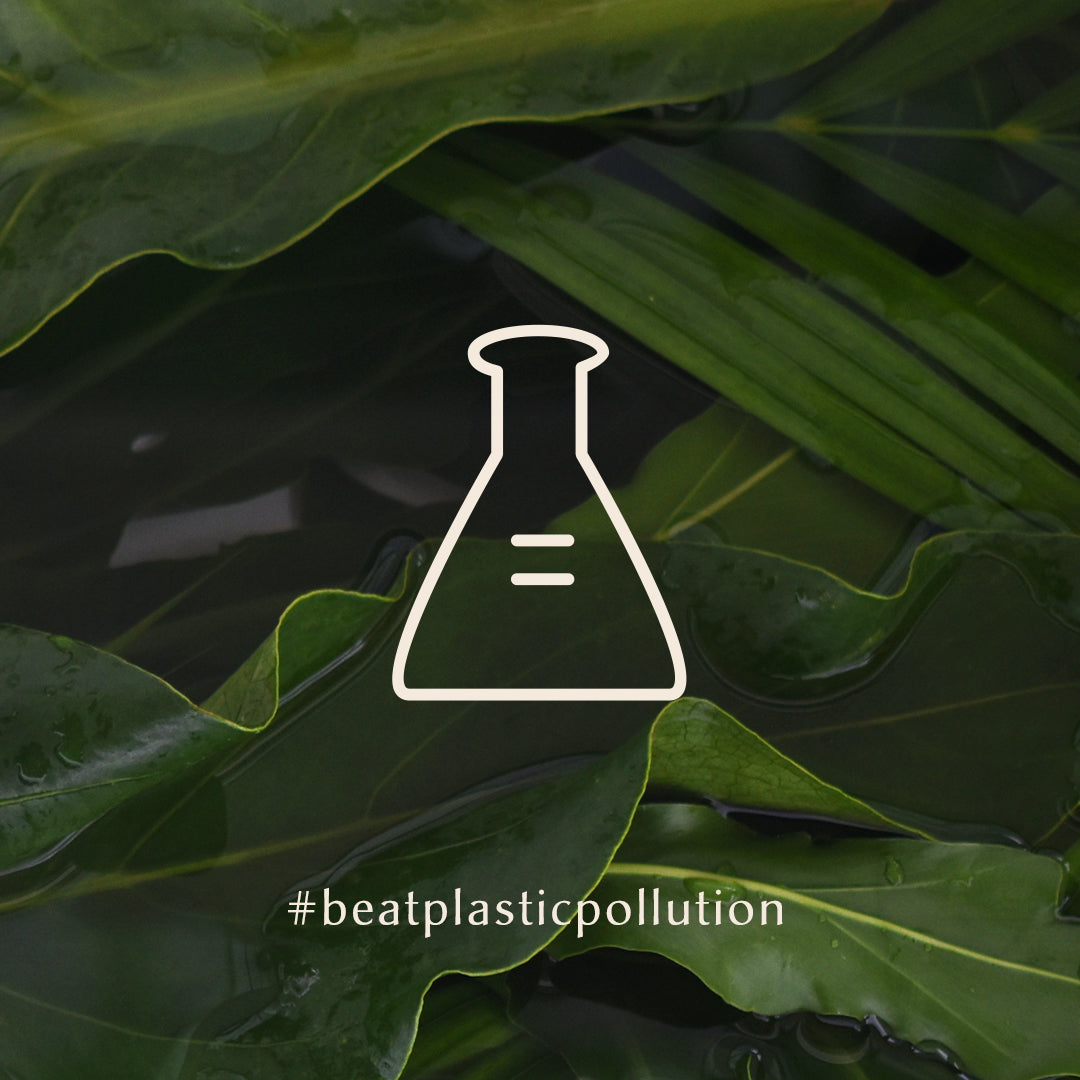
This World Environment Day, we endeavour to explain some of the chemical terms you may find in body care products and why, at Banyan Tree, we are proud to be free from them.
What are parabens?
The term ‘parabens’ is used to refer to a group of chemicals, mostly synthetic, that are commonly found in health, beauty and personal care products. They act as a form of preservative, preventing the growth of potentially harmful microbes such as bacteria or fungus, thereby increasing shelf-life. Parabens usually show up on products’ ingredients lists as:
- Methylparaben
- Ethylparaben
- Propylparaben
- Butylparaben
- Isobutylparaben
- Isopropylparaben
- Phenylparaben
- Benzylparaben or
- Pentylparaben
Why are parabens a cause for concern?
Scientific research has linked the use of parabens to a multitude of health problems. Among those that generated widespread debate was the link of parabens to breast cancer. Research published in 2004 claim to have detected traces of parabens in the breast tumours of 19 out of 20 women studied1. This was further supported by a 2013 study by University of Reading stating that “parabens at concentrations measured in human breast tissue can increase proliferation of MCF-7 human breast cancer cells.”2
That said, the study remained cautious about establishing a direct relationship between parabens and breast cancer, citing “the complex interactions with endogenous hormones which may together alter endocrine homeostasis in the human breast with potential to lead to cancer development.”3 This suggests the possibility of other factors and a need for further research and study.
Other than the risk of breast cancer, Campaign for Safe Cosmetics warns that “daily application… can lead to increased concentrations of methylparaben because it is not completely metabolised.” This may explain why higher levels of methylparaben and propylparaben have been found in the urine samples of adolescent and adult females, compared to their male counterparts.4
The Campaign for Safe Cosmetics also cites studies that suggest that “parabens combined with other estrogenic chemicals may potentially influence the development of malignant melanoma, one form of skin cancer”, while other research has linked the exposure of isobutylparaben during pregnancy to anxiety and behavioral issues in the offspring.4
What are the regulations on parabens?
According to international safety organisations such as the Food and Drug Administration (FDA), the American Cancer Society and Health Canada, parabens are regarded as safe for use in consumer products.
On the other hand, the Campaign for Safe Cosmetics argues that “while the Cosmetic Ingredient Review recommends concentration limits for single (up to 0.4%) and total paraben concentrations (up to 0.8%) in a single product, these recommendations do not account for exposure to parabens from several products by a single individual.”
It is not just about human health…
The American Chemical Society has reported that for the first time, parabens and their byproducts are showing up in tissues of marine mammals such as dolphins and sea otters.5 Further research has to be conducted to determine the health risk to these animals, but this remains a worrying phenomenon.
Furthermore, parabens in sunscreen products have been found to “stimulate dormant viral infections" in the symbiotic algae that live inside reef-building coral species.6 Researchers have estimated that “up to 10% of the world's coral reefs would be threatened by sunscreen-induced coral bleaching.”7 Although this information is from preliminary research, we would still advise consumers to err on the side of caution and avoid sunscreen-products containing parabens. When in doubt, go for reef-safe sunscreens.
What should I look out for as a consumer?
As a general rule, avoid products that contain parabens. Make an effort to read product ingredient lists, looking out for substances ending with ‘-paraben’. Many brands and products today, including Banyan Tree, are proudly paraben-free, so seeking these products out would be a good start to making more conscious decisions.
What does it mean for Banyan Tree to be paraben-free?
Since our inception in 1996, Banyan Tree products has been consciously made to be paraben-free. This means that our products have a shorter shelf-life of two years compared to the conventional three-year expiration period – we think that’s a small price to pay to ensure the health of our environment and community. As alternatives, we use natural preservatives like Vitamin E and natural oils. Safer preservatives like benzyl alcohol and potassium sorbate are employed only when necessary and in limited quantities.
We are constantly reviewing our product formulas, and the research for effective natural preservatives remains an ongoing process. As of our most recent reformulation, 95% of our product content are derived naturally, with many of our products being 100% natural.
For any enquiry, contact us at essentials@banyantree.com.
To shop, or to learn more about our products, visit www.essentials.banyantree.com.
____________________________________________________________________
1 Dubs, Z. (2017, June 15). What Are Parabens? The Truth About Skincare's Biggest Bad Guy. Retrieved May 28, 2018, from https://www.elle.com/uk/beauty/skin/articles/a36356/what-are-parabens/
2 Charles, A. K., & Darbre, P. D. (2013). Combinations of parabens at concentrations measured in human breast tissue can increase proliferation of MCF-7 human breast cancer cells. Journal of Applied Toxicology, 33(5), 390-398. doi:10.1002/jat.2850
3 Darbre, P. D., Aljarrah, A., Miller, W. R., Coldham, N. G., Sauer, M. J., & Pope, G. S. (2004). Concentrations of parabens in human breast tumours. Journal of Applied Toxicology, 24(1), 5-13. doi:10.1002/jat.958
4 Parabens. (n.d.). Retrieved May 28, 2018
5 Parabens and their byproducts found in dolphins and other marine mammals. (2015, October 14). Retrieved May 28, 2018
6 Tibbetts, J. (2008). Bleached, But Not by the Sun: Sunscreen Linked to Coral Damage. Environ Health Perspect, 116(4), A173. doi:10.1289/ehp.116-a173b
7 Donavaro, R., Bongiorni, L., Corinaldesi, C., Giovannelli, D., Damiani, E., Astolfi, P., Greci, L., Pusceddu, A. (2008).Sunscreens Cause Coral Bleaching by Promoting Viral Infections. Environ Health Perspect, 116(4), 441-447. doi: 10.1289/ehp.10966
Should People Be Concerned about Parabens in Beauty Products? (n.d.). Retrieved May 28, 2018, from https://www.scientificamerican.com/article/should-people-be-concerned-about-parabens-in-beauty-products/
Eisenbraun, K. (2017, July 18). What Are the Dangers of Parabens in Skin Care? Retrieved May 28, 2018, from https://www.livestrong.com/article/150690-what-are-the-dangers-of-parabens-in-skin-care/



